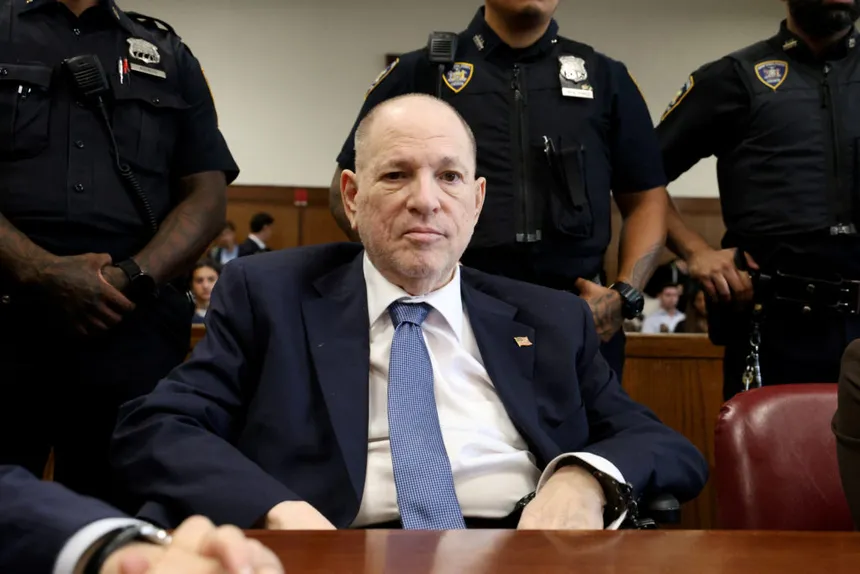The highly anticipated sentencing of Harvey Weinstein, the former movie mogul convicted of rape and sexual assault, has been delayed due to his lawyers’ request to file a motion for a new trial. Weinstein, 70, faces up to 18 years in prison when he is eventually sentenced, which is now scheduled for February 23. However, if his lawyers’ motion is granted, the sentencing may be delayed further. This is not the first time the courtroom has seen a delay in Weinstein’s case, as he is already serving a 23-year sentence for a similar conviction in New York, which is under appeal.
The latest delay comes after Weinstein was convicted of one count of rape and two counts of sexual assault against an Italian model and actor who accused him of appearing uninvited at her hotel room door during a Los Angeles film festival in 2013. The jury acquitted Weinstein of one count of sexual battery, but failed to reach verdicts on three other sexual assault counts, leading Los Angeles Superior Court judge Lisa Lench to declare a mistrial on those counts. Prosecutors have not yet decided whether to retry the allegations.
Weinstein has maintained his innocence throughout the proceedings, pleading not guilty to all of the charges and denying ever engaging in non-consensual sex. His conviction marks a significant milestone in the #MeToo movement, which has led to widespread reckoning and accountability for those accused of sexual misconduct.
In the courtroom, Weinstein’s lawyers argued that the trial was tainted by misconduct and that their client was denied a fair trial. They pointed to alleged mishandling of evidence and potential witnesses, as well as perceived biases among the jurors. The motion for a new trial is aimed at reversing the jury’s verdict and giving Weinstein a fresh start.

Harvey Weinstein (Via Harvey Weinstein/Twitter)
The delay in Weinstein’s sentencing will likely be met with resistance from his accusers and supporters, who are eager to see justice served. For them, the prospect of a retrial or appeal is disconcerting, as it threatens to undo the progress made in the fight against sexual violence. However, for Weinstein’s legal team, the delay is seen as an opportunity to rectify perceived imbalances in the trial and ensure that their client receives a fair outcome.
As the legal battle continues, the public and media are likely to remain fixated on the case. The controversy surrounding Weinstein’s conviction has sparked intense debate about the treatment of sexual misconduct cases, with some arguing that the convicted rapist received a lenient sentence. Others have criticized the prosecution’s handling of the case, suggesting that the verdict was a result of prosecutorial overreach.
Ultimately, the outcome of Weinstein’s new trial bid remains uncertain, but one thing is clear: the legal process is far from over. As the saga continues to unfold, it is essential to keep the conversation open and honest, exploring the complexities of sexual violence and the rights of all parties involved.
